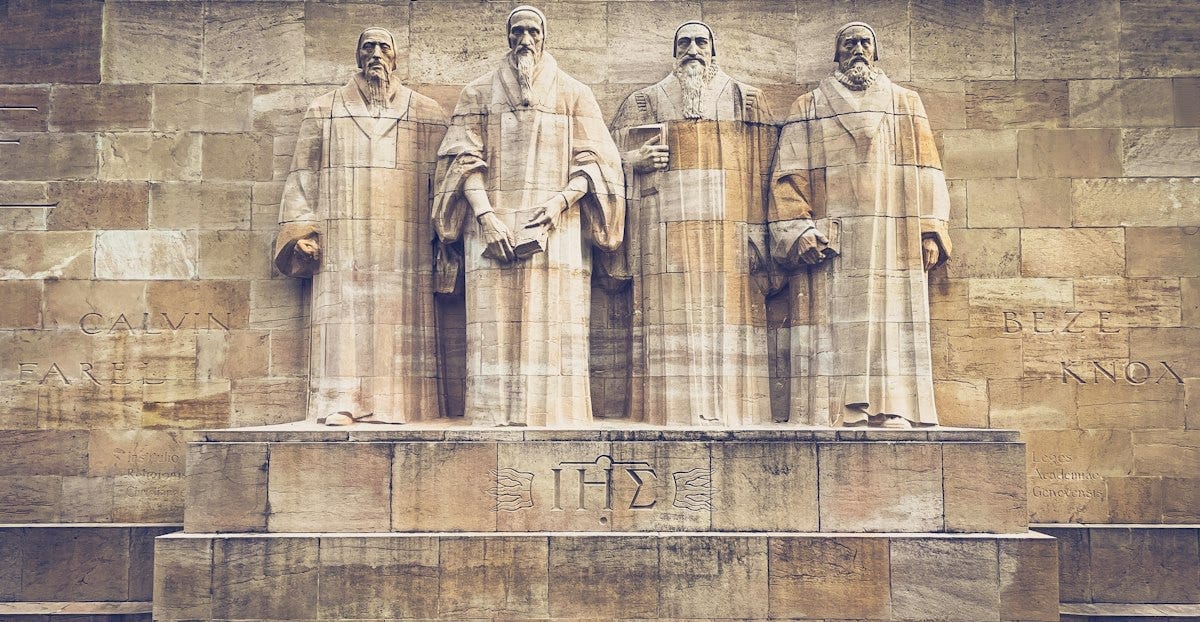The Hijacking of Orthodoxy

If I asked you, 'What does it mean to be orthodox?' You most likely would say something about the Eastern Orthodox faith because it has the word 'orthodox.' Or you would associate being orthodox with having faith. Specifically, having faith would be tied to belief in a set of propositions. Those propositions would, at minimum, include believing certain things about God, the Bible, and Jesus.
However, the notion that faith and belief (specifically cognitively believing a specific set of doctrines) are synonymous is a reasonably new idea. For the vast majority of Christian history, the idea of holding to the right 'head knowledge' was only a tiny part of what was meant by faith, and it didn't hold the dominant place like it does today when it comes to defining orthodoxy.
Two developments in Western Christianity reshaped orthodoxy from a robust idea encompassing a person's life to merely a mental exercise. Last week, new data came out confirming Religious "Nones" are now the largest religious group in America. If Christianity wants to survive and thrive in a post-religious America the Church needs to change course on being dogmatic in narrowly defining orthodox as 'right belief' and recapture our historical understanding of a robust orthodox faith.
Religious 'Nones' are now the largest single group in the U.S.
Two Developments that Transformed Orthodoxy
The Protestant Reformation
The idea that orthodoxy is primarily faith as belief and agreeing that a claim or statement is true first rose in popularity during the Protestant Reformation. One of the most significant results of the Reformation was the rise of denominations, which largely are created based on differing proposition statements between Christian groups.
When Protestants first broke away from Catholicism based on defined doctrines and confessions, these differences soon spread throughout Protestantism, creating a splinter effect in the new movement. If you are a Baptist, you believe a, non-denominational means you believe b, Episcopalians believe c, etc. This splintering based on beliefs isn't just a Protestant phenomenon; even Catholics developed doctrines and confessions as a way of distinguishing themselves from Protestants.
Before orthodoxy was changed to exclusively mean believing particular claims or statements it referred to 'right or correct worship.' This essentially meant practicing the liturgy correctly made you orthodox.
The Enlightenment and the Birth of Modern Science
The second significant event that solidified orthodoxy as a mental exercise was the birth of modern science. With the Enlightenment came the understanding that truth is associated with factuality. For something to be true, it must be based on reproducible facts that can be verified.
Furthermore, this new understanding of truth as factuality was applied to the Bible, which called into question many Christian teachings and traditions. Part of why orthodoxy as right belief was not dominant was because the validity of the Bible was not questioned.
For centuries, the vast majority of Christians did not know how to read, and those who did rarely owned a Bible. The truth is that from the canonization of the Bible in the fourth century through the middle ages Christians understood the Bible to hold conventional wisdom. The Bible was taken for granted as there was no conflict with science.
Two Problems with Orthodoxy as a Mental Exercise
After the Enlightenment changed our understanding of truth, orthodoxy was solidified as a mental exercise focused on agreeing with a set of claims. This had two negative impacts:
- This change in the definition of orthodoxy also changed our understanding and expectations of what God wanted from us. New Testament scholar Marcus Borg explains,
"It suggests that what God really cares about is the beliefs in our heads – as if 'believing the right things' is what God is most looking for, as if having 'correct beliefs' is what will save us. And if you have 'incorrect beliefs,' you may be in trouble. It's remarkable to think that God cares so much about 'beliefs.'" (The Heart of Christianity, p. 30)
- The other issue with understanding orthodoxy as faith or head knowledge is that believing a set of claims or statements to be true has very little transforming power. As I've written about recently in my article Rejecting Faith as Belief and Embracing it as a Journey,
"Plenty of People Believe the "Right" Dogma and Are Still Assholes."
If your beliefs lead you to believe you are in a healthy place with God, but you look nothing like Jesus, there is something wrong with how you're defining belief. The truth is we believe what we belove and a faith that beloves God does much more than simply agreeing with a set of statements.
Recapturing Orthodoxy as a Beloving of God
At the center of historical orthodoxy is a beloving of God. To belove God means to give our hearts to God. This type of faith is found in the Bible and the early church expressed this in four complementary ways:
- Assensus - This is faith as believing a statement or claim to be true. Our modern definition of faith and orthodoxy holds almost exclusively to this expression and completely ignores the other three.
- Fiducia - This is faith as radical trust in God. Within this aspect of faith, God is the one in whom we place our trust as our foundation, support, and safe place. When Jesus teaches us "not to be anxious," he tells us to have fiducia. The opposite of radical trust in God is anxiety and worry.
- Fidelitas - Closely tied to radical trust in God is faithfulness to God. Fidelitas is the Latin root for the word fidelity. To have faith as fidelitas means loyalty and commitment of our selves at the deepest level of who we are. It is a commitment of our hearts to God.
- Visio - Finally, is visio or seeing the whole of reality. Another way of saying this is seeing the big picture of God and the world. How we see reality matters because it profoundly impacts our outlook and how we live our lives on a day-to-day basis. If your outlook on life is everything has gone wrong, everyone is totally depraved, and I need God to survive how bad things are, then you're going to have a pretty pessimistic view. But if you see the big picture as life-giving and nourishing, then you're free to live a life of compassion and justice because your outlook is built on a radical trust in the goodness and kindness of God.
Notice that within a robust understanding of orthodoxy, belief has its place. It's just not in the majority or even primary. Instead, the majority of orthodoxy and faith is a matter of the heart. From the heart, we cultivate radical trust, faithfulness, and a new perspective on the big picture of God and this world. From the outflow of our heart, we belove God and by beloving God we believe. A proper understanding of orthodoxy recognizes we are transformed from the heart to the head, not from the head to the heart.




